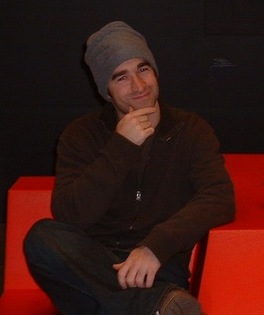Galapagos
"It's evolution baby!"
Book #16 on my '06 list was Kurt Vonnegut's Galapagos.
Galapagos is a story about a small group of travellers who journey to Ecuador to board the Bahia de Darwin for the "Nature Cruise of the Century". Little do the guests know that the Earth is about to undergo a major war and economic crisis (as societies realize that money is really just meaningless paper that's of little real worth) that will leave them as the last human survivors and the future progenitors of all mankind. The tale is told by the ghost of Leon Trout (son of the Vonnegut's infamous Kilgore) and set one million years in the future (1,001,986). Over the million years humans (d)evolve from the big-brained civilized beings we are today into small-brained seal-like creatures who subsist on fish and are preyed upon by sharks.
To me Galapagos reads as a critique of the way we coexist with our environment today. Despite our big brains and technological advances we continue to erode away at the very environment which nurtures us. A nature cruise is a perfect example of a well meaning attempt to connect with our environment, that in actuality would only result in more pollution and further disruption of the relatively undisturbed Galapagos. In Vonnegut's story evolution works it's magic reducing (or improving depending upon how you look at it) our cumbersome big brained species into a small-brained sustainable species that isn't capable of wreaking the kind of havoc that we do today. Sometimes evolution works in mysterious ways.
Vonnegut pulls it all off in his typical humorous form. Despite the depressing underlying theme the book is never preachy and doesn't feel at all heavy handed. Instead Vonnegut focuses on building the characters and setting the scene, letting you fill in the details for yourself. As an example, here's a snippet from the book which I think illustrates Vonnegut at his finest:
"Even dogs had names back then. Donald was the dog...and Donald was harmless. He had never bitten anybody. All he wanted was for someone to throw a stick for him, so he could bring it back, so somebody could throw a stick for him, so he could bring it back and so on. Donald wasn't very smart to say the least. He certainly wasn't going to write Beethoven's Ninth Symphony. When Donald slept, he would often whimper and his hind legs would shiver. He was dreaming of chasing sticks."I would definitely recommend this one, though that's true of pretty much every Vonnegut book I've read.

Labels: kurt vonnegut



0 Comments:
Post a Comment
<< Home